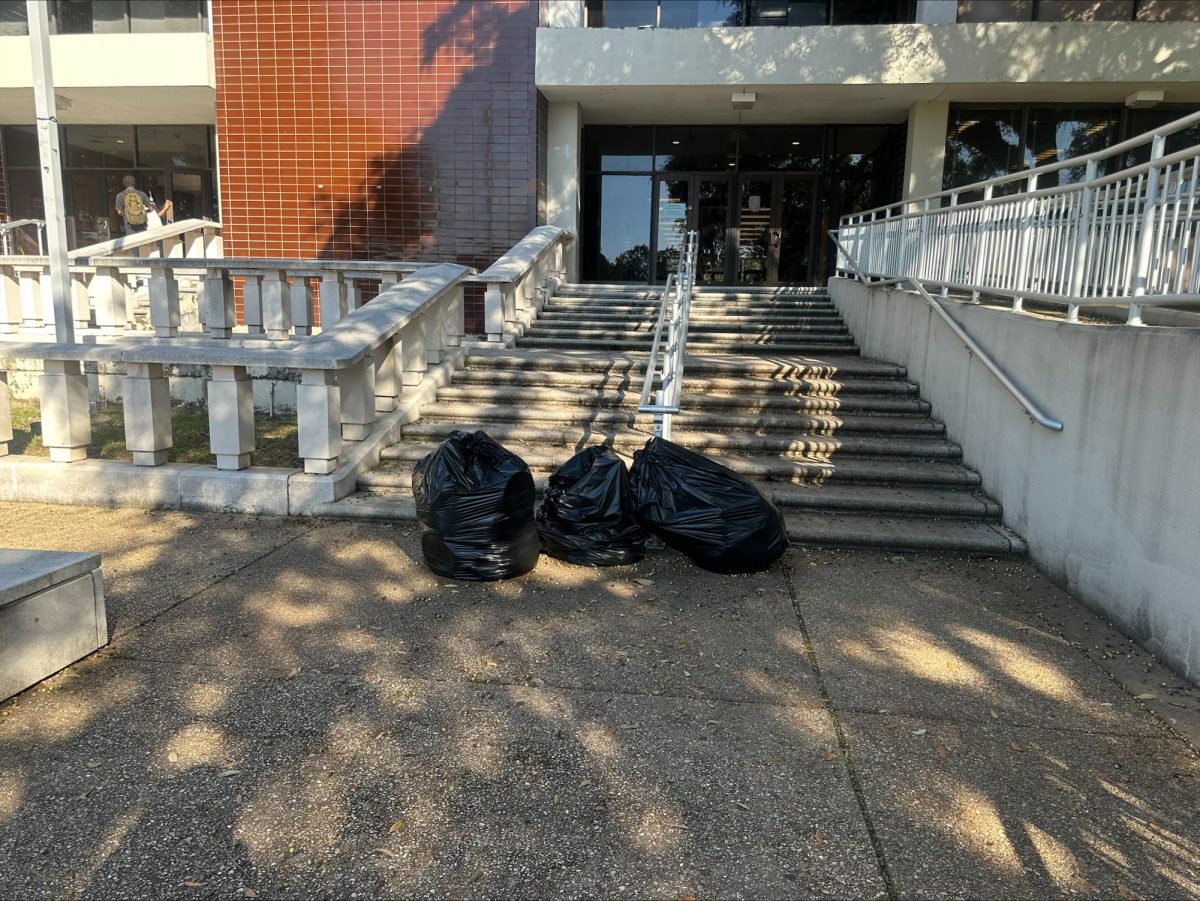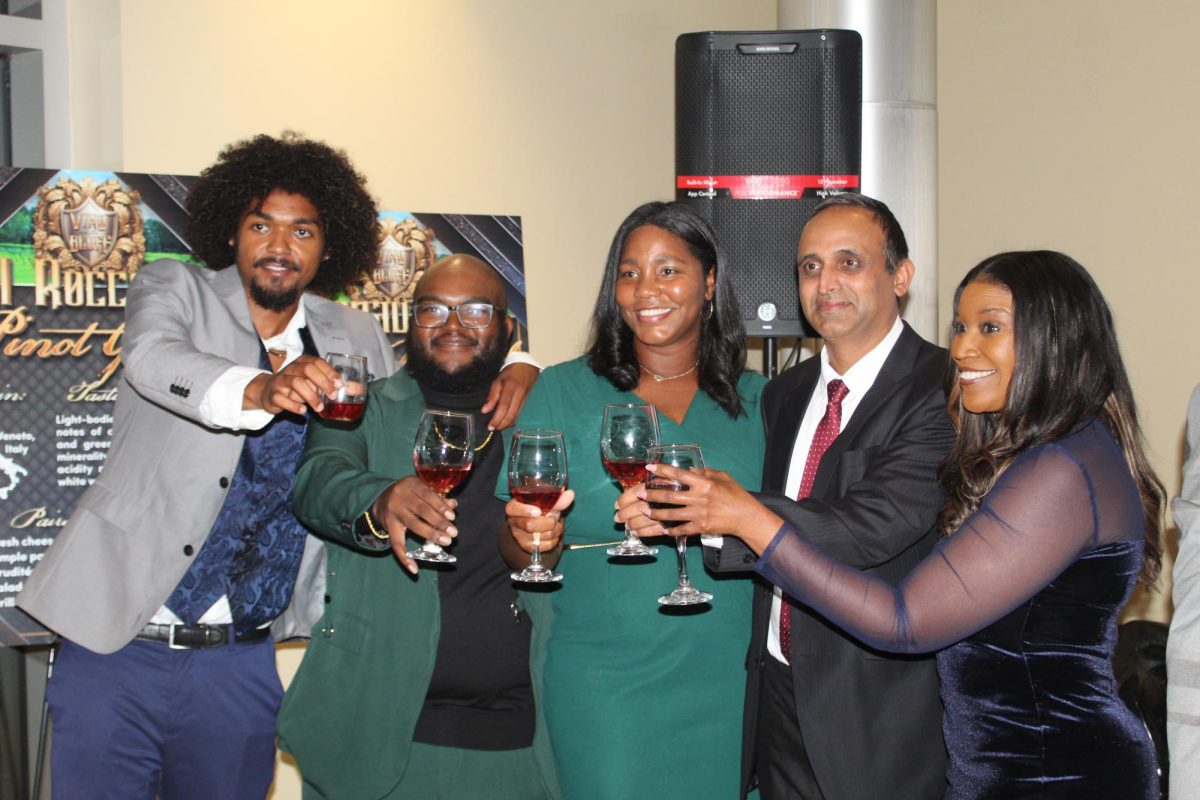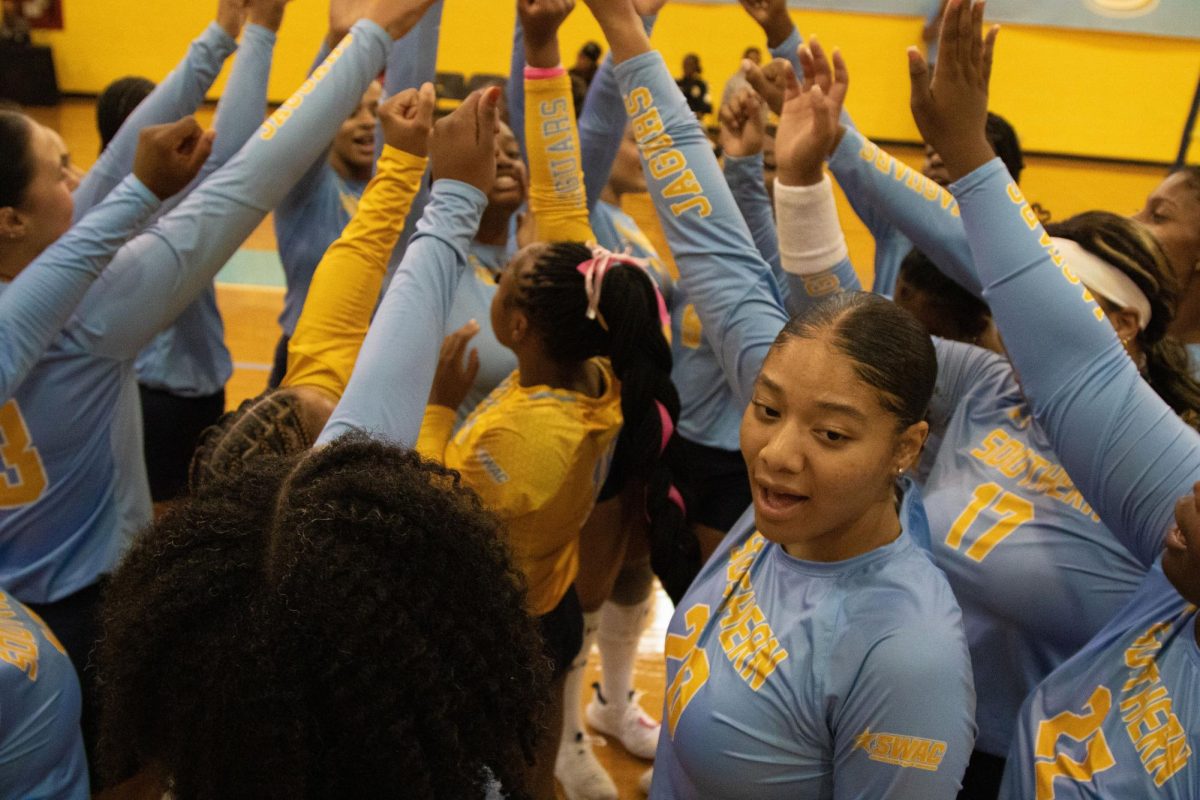Wednesday night, Jon Yasin was the third speaker in the Chancellor’s Lecture Series. Held in the Cotillion Ballroom of the Smith-Brown Memorial Union to an intimate crowd.
Hailing from Bergen Community College in N.J., where Yasin is a professor of English, the “hip-hop doc” has traveled across the country enlightening students about the history of the hip-hop culture and pointing out its positive aspects.
Before Yasin spoke, students from the Creative Arts Society presented their artwork and performed a spoken word piece following the theme of “My Love-My Life.”
Citing that rapping began as a West African tradition, Yasin said, “One of them was the noting of speaking, talking, communicating messages over music. The earliest forms where them telling stories or retelling their history.”
Diving deeper into the beginning of blacks talking over music to express their emotions, Yasin discussed the emergence of gospel music (sing) and how it evolved into early poets like Nikki Giovanni reading their poetry over music (rap).
“Poerty has its own form of stressed and unstressed syllables. But what happens to hip-hop is emcees are reciting every word syllable tied to a musical beat. That’s what makes it different, rhythmic.”
Yasin said his introduction into hip-hop began in 1979 after hearing his students rap. Understanding that the hip-hop culture was going to be a major influence in children, Yasin began using the method emcees use to write rhymes to write essays such as, understanding your theme, explaining your points and using metaphors.
Known for involving present and former students in his lectures, Yasin introduced Lord Cashus D, a member of the Universal Zulu Nation, the oldest hip-hop organization created by Afrika Bambaataa in 1973.
“What you call hip-hop is not hip-hop. Hip-hop was something we used to do. What yall do now is rap—recording artist pretending. This is an industry based on images making money. This is an industry feeding the prison system with an image.”
As the CEO of Creative Minds House of Culture and Universal Teachers and a spiritual leader, Lord Cashus combines his knowledge of African and African-American history and the hip-hop culture.
“This is mind control,” said Lord Cashus of the music industry’s rule of the “gansta” image and how its influence on clothing, movies, treatment of women, black masculinity has had a negative impact on the black community.
Amber Jarrell, a freshman Biology major from Baker was impressed with Lord Cashus’ delivery.
“I really loved Cashus. He had some really informative stuff to say. This was one of my favorites. He said a lot of things about hip-hop that I was not aware of.”
Jarrell went on to say she attributed the low turn out to Yasin not being nationally known but she hopes the Lecture Series gets more speakers like Lord Cashus.
“I really did not get a lot of what Dr. Yasin was saying,” said freshman nursing major Jennifer Newman. The Baker native said, “I really did not connect with Dr. Yasin because he wasn’t as engaging as Cashus was.”
Like Jarrell, Newman said she had attended the two previous lectures and hopes the series will continue.
A few students, however, questioned the validity of Yasin as an authority on hip-hop culture because of the inaccuracies in some of his points and the lack of published material.
Both Yasin and Lord Cashus claimed hip-hop became gansta rap when the California group N.W.A. released their first single in 1987 and album “Straight Outta Compton” the following year.
Regardless of hip-hop philosophy, Yasin and Lord Cashus sparked a heated debated among students about hip-hop, rap and the images that are portrayed.
“As you can see we’ve run well over the 9 p.m. ending time,” said Southern University Chancellor Kofi Lomotey. By 10 p.m. the lights in the Cotillion Ballroom had been turned on and students were still talking to the speakers.
“Tonight we presented two very different approaches to hip-hop and the academic one and the streetwise one. I think the lecture surprised the students in what they would cover.”
March’s speaker will be poet, activist and professor Sonia Sanchez.
Categories:
‘Hip-Hop Doc’ enlightens SU
February 27, 2009
0





